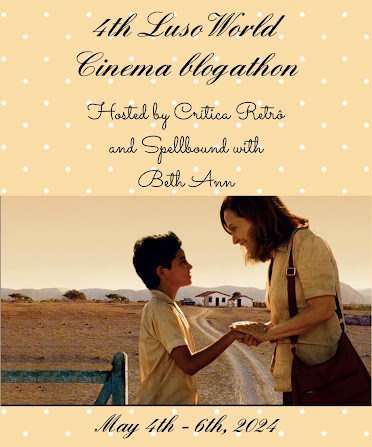
Sophia Loren (r) and Eleonora Brown flee WWII Rome. Image: TCM
The 1960 Italian film Two Women (La ciociara) is a tough watch.
It doesn’t start out that way. Like other terrible things in life, events begin as an undesirable yet manageable problem, only to unfurl into a nightmare.
The film takes place in 1943 Italy as allied planes bomb Rome. When the shelling becomes too much for shop owner Sophia Loren, she flees the city with her pre-teen daughter (Eleonora Brown) and journeys to the small mountain village where she grew up.
The two have a close mother–daughter relationship even though they are of different temperaments. Brown is a quiet, pious girl with a generous spirit and remarkable insight. Loren calls the girl a saint and says, “I’m not even worthy to be her mother.”
As for Loren, she is a voluptuous young widow, unafraid to speak her mind. For example, when an Italian collaborator becomes overly friendly, she establishes Boundaries. “Keep your hands off me, you miserable pig!” she says.
Being a mother is Loren’s raison d’être; even when bookish university student Jean-Paul Belmondo declares his love for her, she tells him, “My daughter is enough for me.”
With the arrest of Italian dictator Benito Mussolini and Allied troops pushing through German lines, Loren feels it’s safe to return to Rome.
But going home proves far more hazardous than anticipated.

Jean-Paul Belmondo adores Loren – and who doesn’t? Image: IMDb
Two Women is an exploration of war’s effect – and injustices perpetrated – on women and girls.
The film is also a study in confinement, even though the characters aren’t prisoners or on the battlefield. We see how war narrows and squeezes a person’s existence.
For example, living in the mountains provides plenty of open space, but in a village everyone knows Everyone Else’s Business.
Nor are villagers as isolated as they think. At night, planes lower lights into the valley below to track possible troop movements. By day, refugees trickle into the village, followed by, eventually, German soldiers.
Even when Loren and Brown begin their trek back to Rome, they are confined to the road, mindful of troop vehicles and aircraft. It’s too dangerous to make the journey cross-country.
The most confining place of all is an abandoned church where the pair stop to rest. Here, in a traditional place of sanctuary, a horrific act occurs.
It’s a grim reminder that there is no sanctuary in war.

The aftermath of savagery. Image: IMDb
Sophia Loren won an Oscar for her mesmerizing performance in this film, and was the first foreign actress in a non-English film to do so. She also awarded best actress at the 1961 Cannes Film Festival.
For her role, she drew upon her own wartime experiences as a girl living with her mother and sister.
“With my own memories to draw upon, you would think I would have had an easy time of it,” said Loren. “But it was very hard for me to relive my girlhood terror and at the same time to transform the reality of my feelings into the role I was acting. …I still looked at my experiences with the eyes and emotions of a girl, but the role demanded that I see them with the eyes of a tortured woman.”¹
The film was based on the 1957 novel by journalist and author Alberto Moravia. The story was fiction, but it too was based on his experiences during WWII.
Initially, Paramount Studios was set to finance the film, as part of Loren’s five-picture contract, with Oscar-winning George Cukor scheduled to direct. However, the deal fell through, and Italian director Vittorio De Sica assumed the project.
De Sica was an influential and award-winning Italian neorealism filmmaker. Neorealism was a gritty style of filmmaking after WWII that examined stories of ordinary Italians who had survived the war. Two of De Sica’s acclaimed films, Shoeshine (1946) and Bicycle Thieves (1948) won Academy Awards and helped establish a permanent Best Foreign Film Oscar.
Although Two Women isn’t technically a Neorealism film – the British Film Institute says the “trend” ended in the mid-1950s – you can still see the neorealistic influence. It makes for a haunting film not easily forgotten.
—
Disclosure: The Film Detective sent us a link in exchange for an unbiased review. You can watch Two Women here.
Source
¹TCM. (Retrieved April 28, 2019.) Two Women by Felicia Feaster.
Two Women: starring Sophia Loren, Jean-Paul Belmondo, Eleonora Brown. Directed by Vittorio De Sica. Written by Cesare Zavattini. Compagnia Cinematografica Champion, 1960, B&W, 100 mins.












I agree this classic is hard to watch – the rape scene is just brutal. But part of the magnificence of Loren’s performance is her reactions afterwards. Remember that she has been raped by a group of men, which is beyond horrible. But her character saw her daughter being repeatedly violated, which, as a parent, I think, would be even worse. She was unable to protect her beloved girl and now has to help her pick up the pieces. That part of Loren’s performance always touches me. She has to deal with her own physical and emotional trauma, but she is more concerned with her daughter.
The only complaint I have with the film, and it is not insignificant, is one I would like you to comment on. Why was it necessary to make their attackers Black? It feeds into very racist notions of Black men as predators of white women. I am a historian and I can tell you that the number of Moorish troops in that part of the war was minuscule.
LikeLiked by 2 people
It does feed into that notion, like you said, and in the film it feels contrived. It’s almost as though the film is saying European & North American men could never be guilty of such acts, which is not true.
LikeLiked by 2 people
Many thanks for this. I’ve put the movie on my list of possibles to cover on Noirish.
LikeLiked by 2 people
I’m eager to hear your reaction to it. I’m serious!
LikeLike
Great film, but it is so very grim and difficult to watch. Some great acting in this.
LikeLiked by 2 people
You said it. It’s a sobering, hard-hitting film.
LikeLike
This is one to look out for – thanks!
LikeLiked by 1 person
This film is well done in every way. Sophia Loren, though – she is utterly fabulous.
LikeLiked by 1 person
Haven’t seen this in years. As you say, it’s excellent. I looked up Sophia in IMDB. Her most recent credit is for a short film in 2014. Looks like she has retired, though maybe she will surprise us.
LikeLiked by 1 person
She’s had a long and impressive career, but hopefully she does surprise us. Wouldn’t that be great?
LikeLiked by 1 person
“Bicycle Thieves” has been one of my favorite movies for a long time, so I am excited to watch “The Confines of War” by the same director, especially as it pertains to war and its effect on women. Thank you for this timely review.
LikeLiked by 1 person
I think you, especially, would appreciate this film. (I don’t want to use the word “enjoy.) It’s a powerful one.
LikeLiked by 1 person
One of absolute favourite actresses this film is tough one but good one
LikeLiked by 1 person
Sorry – somehow I missed your comment. Sophia Loren is fabulous, isn’t she? I can’t imagine anyone else in this role.
LikeLike